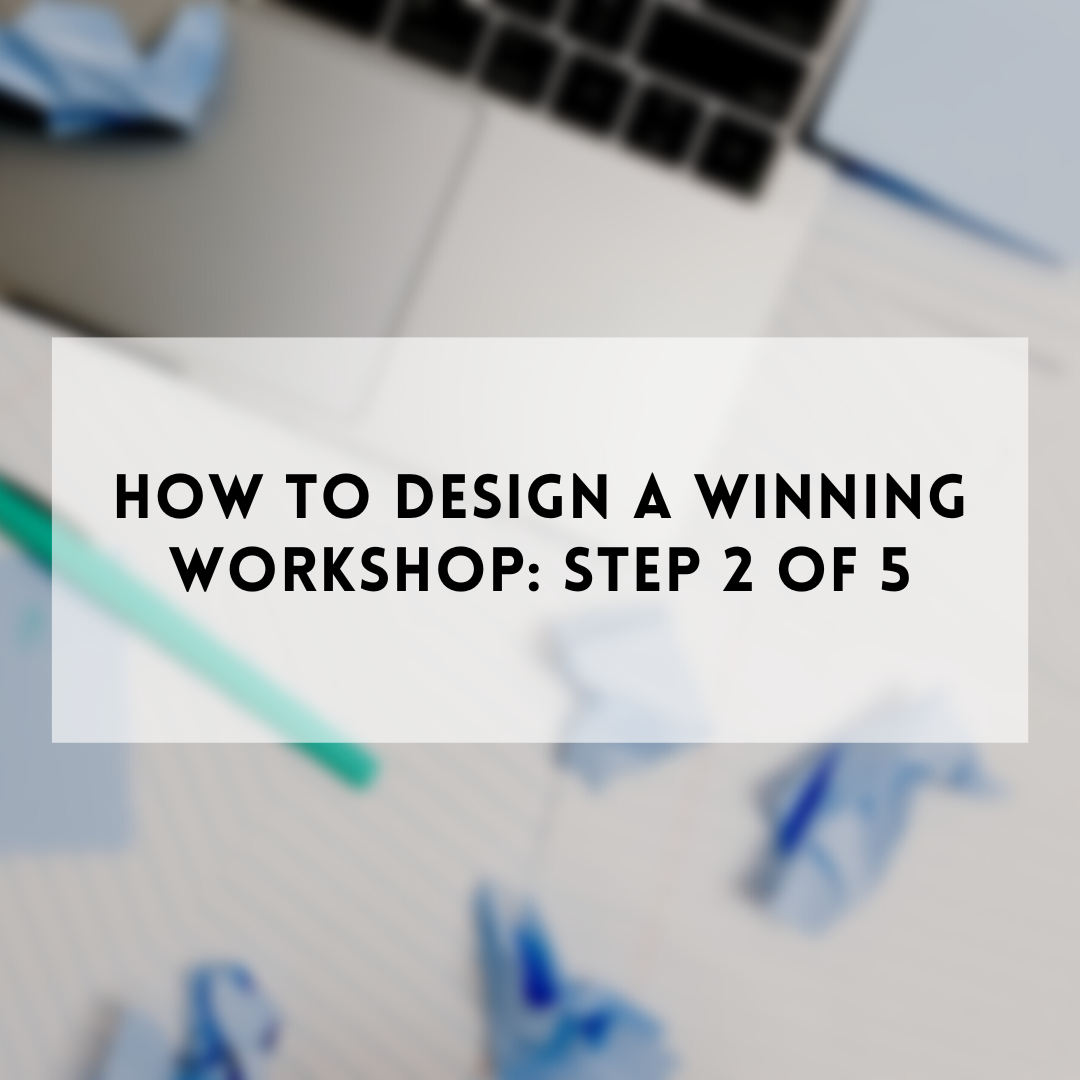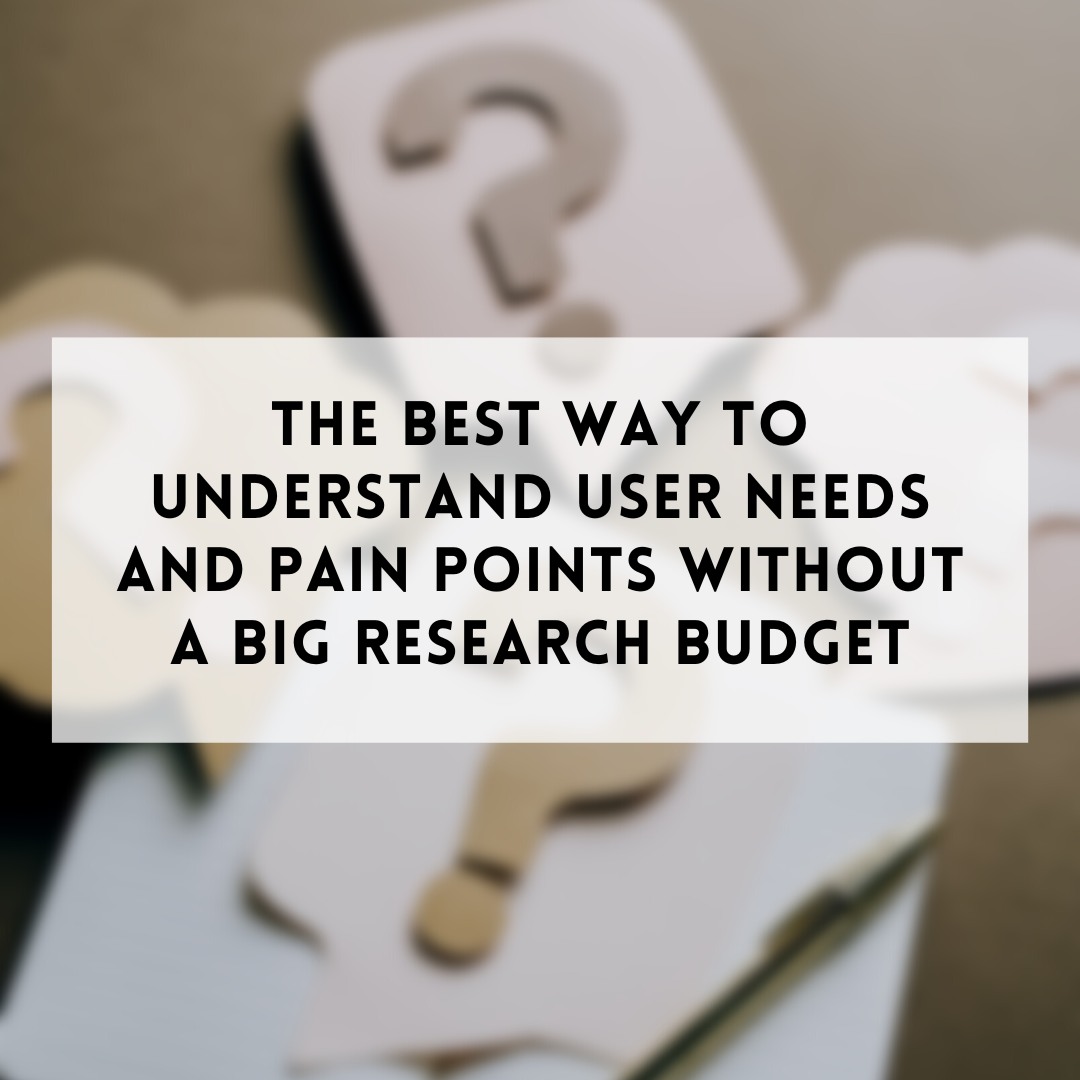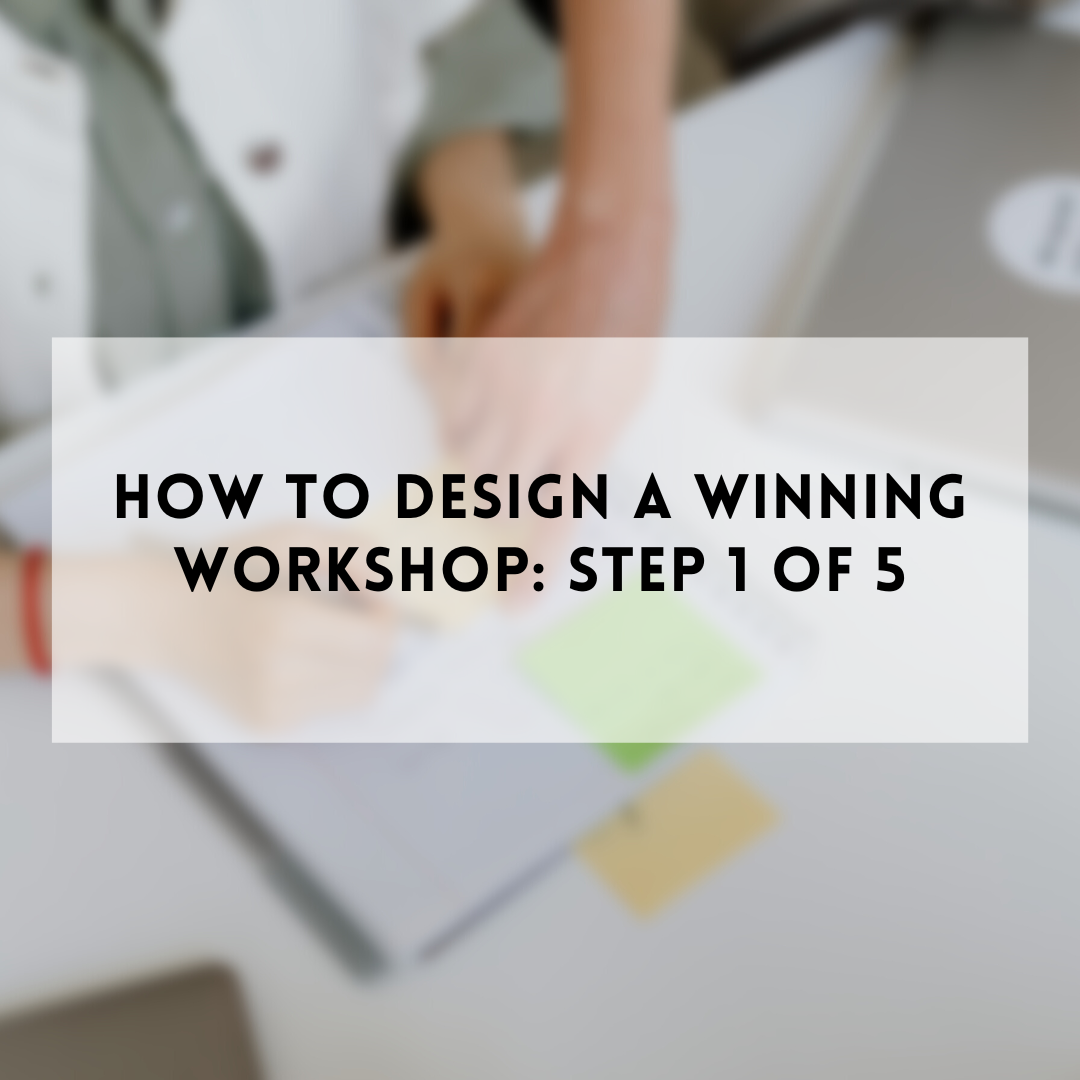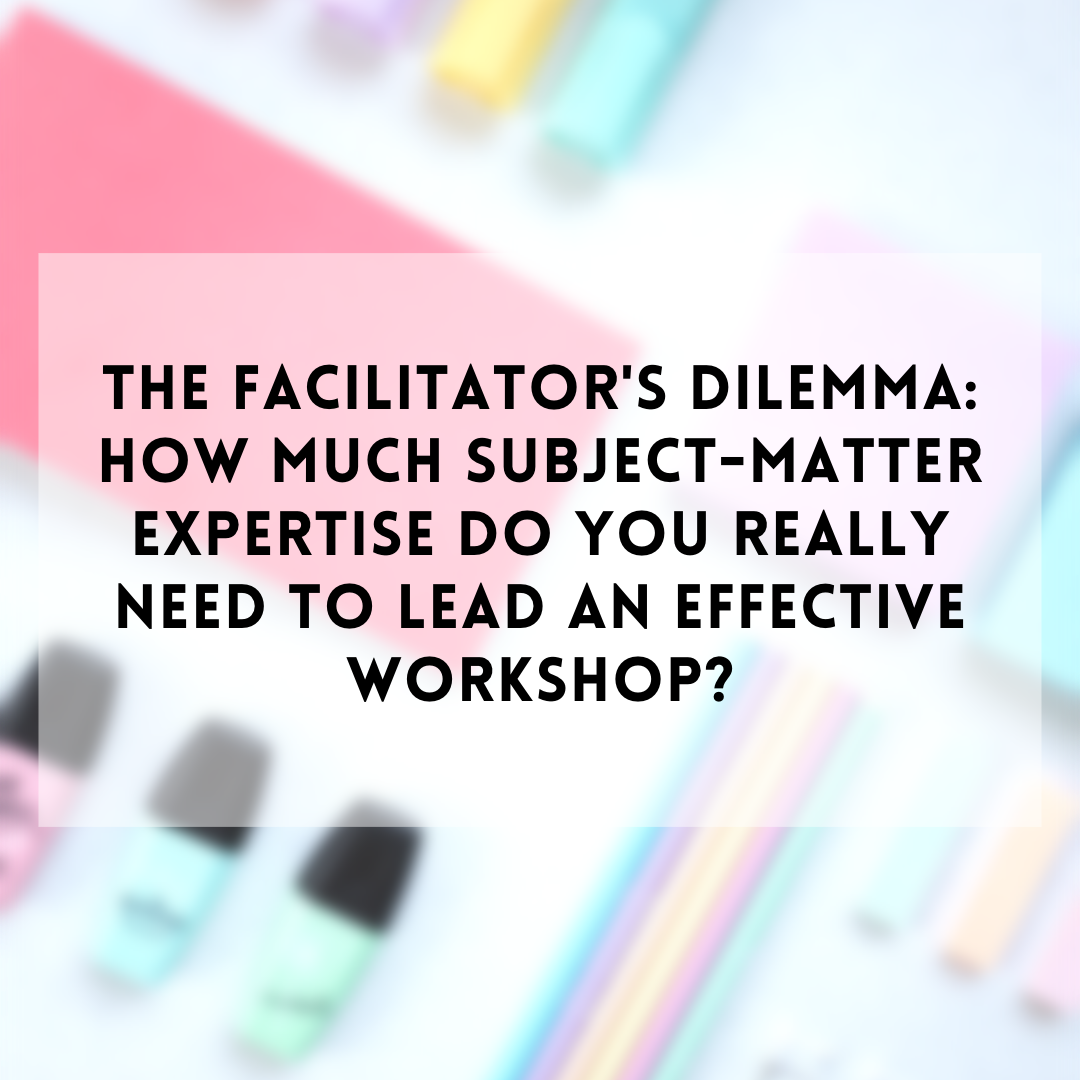Whether you’re a facilitator or a business leader, here you’ll find resources, tools and how-to guides aimed at helping your teams — and your business objectives — achieve their potential.
How to name a product: From brainstorm to buzzworthy
Naming a new product isn’t easy, but it doesn’t have to be painful. It can be tempting to slap an acronym on it and call it a day, but taking time to come up with the perfect name is truly worth the effort. Here are my tips for picking a great product name, and a guide to get you get started on the naming process with your team.
What do workshop facilitators do?
Most workshops and complex problem-solving endeavors are far more successful with a facilitator present. So, what is it about a great facilitator that unlocks this potential? Check out the three key abilities that a great facilitator brings to the table – think of them as the ingredients that, when present, make a workshop feel fruitful and satisfying.
A survival guide for Product Managers working with challenging stakeholders
In a perfect world, we'd have perfect professional chemistry with all of our colleagues. But alas, it's not a perfect world—not even close. Fortunately, even if there are certain stakeholders you mesh with less than others, it's almost always possible to overcome personality clash and find a way forward. Here are the tips I've found to be most helpful for working with, not against, your most difficult teammates.
Steal these guidelines for your next meeting
There’s no magic button to eliminate unruly behavior among workshop participants, but there are a few things facilitators can do to get ahead of it. In this post, I share my four favorite ground rules that set teams up for better meetings and workshops, along with a few bonus rules that apply to virtual sessions.
How to design a winning workshop: Step 3 of 5
Have you ever experienced a moment in a workshop or meeting when it became abundantly clear that your participants weren’t on the same page about the objective for your time together? It’s mostly avoidable if you make time for one very important aspect of workshop design. In today’s installment of this series on intelligent workshop design, I’ll be sharing methods and activities you can borrow to nail this part of the process.
Conflict is a product manager’s secret advantage (if you know how to use it)
No matter the team dynamics, conflict is inevitable. What if conflict wasn’t to be avoided, but embraced? Cultivating an openness to conflict with your product team just might be your secret to unlocking your team’s best new ideas. Here are my facilitator-approved tips for doing just that.
The art of naming: How to overcome challenges in naming products, services, and companies
If your team has been spinning out on naming for many weeks or even months, I’m guessing at least one of four factors is at play. I cover them in this article, along with 7 facilitation methods from my own experience leading workshops that will get the group back on track.
3 prototyping hacks you can steal for your next workshop
Today, I’m sharing my prototyping hacks to help your team create the best initial, simplified version of their design – one that’s ready to be tested, iterated on, and validated. See why getting it right is so important, and lift these activities to streamline the next session you facilitate for your team.
How to design a winning workshop: Step 2 of 5
Part 2 of this series on workshop design is all about understanding the customer and their needs. This article includes some resources and sample activities you can leverage as you design your workshop flow — they’re activities I use in my own work as a facilitator.
The best way to understand user needs and pain points without a big research budget
Understanding user needs and pain points is essential for building successful products and services, but that doesn’t mean we need to get stuck going down a multi-month research hole in order to be “ready” to collaborate, innovate, or prototype. Learn how to overcome research analysis paralysis with some actionable methods for gathering and applying insights – all without a big research budget.
How to design a winning workshop: Step 1 of 5
In this five-part series, I’ll break down the arc of a winning workshop from beginning to end, with guidance around how the session might flow and sample activities you can copy/paste into your own plans. Part 1 of this series and today’s focus is all about grounding and expectation setting: the foundation of any workshop.
A workshop guide to define a more purposeful return-to-office protocol for your team
The return-to-office conversation has been top of mind for many as more and more companies call employees back to work in person. Rather than simply telling people to return to the office without any structure or intention, let’s instead think about the best way to accomplish the work to be done. Here’s a workshop format for team leaders and managers who want to handle this next chapter with intention.
3 facilitation techniques for effective group decision making
Helping teams make decisions can be a complex process when there are various group dynamics, cultural quirks, and political intricacies at play. But it doesn't have to be. Let’s explore a few essential facilitation techniques that empower groups to harness their collective wisdom, navigate challenges, and arrive at well-informed decisions.
How to support more intentional ways of working: A corporate wakeup call
Now, more than ever, we have an opportunity to act and work differently, creating new ways forward that are authentic and put people first (rather than profits). But doing so can be extremely challenging in environments where being heart centered isn’t easy. Here are 4 steps for cultivating this in your own life and work.
Become a better facilitator with 5 tips for improving your active listening skills
The ability to be an active listener is pretty much a non-negotiable for facilitators, but that doesn’t mean the skill comes naturally to everyone. If you want a little support honing your active listening skills, here are 5 actionable tips you can start folding into your facilitation practice to make your sessions a more positive experience for everyone.
The facilitator's dilemma: How much subject-matter expertise do you really need to lead an effective workshop?
Doing some backgrounding is a standard part of a facilitator’s prep process, but finding success is actually more about learning to discern between too much, not enough, and just the right amount of intel. So, what does “just right” look like? That’s exactly what I’m breaking down to help you better focus your energy and let go of expectations that you need to have all the answers.
3 workshop formats to help spark innovation with your team
Want to cultivate a more dynamic, engaged, and successful organization? Who doesn’t! One of the most impactful ways to achieve this goal is to take a more intentional approach to innovation. Learn the benefits of doing so, and three different workshops formats that will jumpstart the process for you team.
What the power to pivot says about your facilitation style
Guiding groups successfully requires responsiveness. Whether you facilitate workshops regularly, or frequently find yourself in the role of meeting leader, this necessary skill can often be the difference between a stellar session, or one that misses the mark. Here’s why it matters, and what the power to pivot says about your facilitation style.
How to prioritize for a sane life: lessons from 7 years as a solopreneur
Here’s a behind-the-scenes look at 6 “secrets” I’ve cultivated over the past 7 years working for myself as a facilitator and strategic workshop leader. They’ll help you manage your day-to-day life in a way that’s organized, enjoyable and sustainable.
4 ways to engage the disengaged people in your meeting
Hard-to-handle participants are par for the course if you frequently facilitate meetings and workshops. While it’s stressful when these things happen, it doesn’t need to be the thing that keeps you up at night. Here are 4 tips for managing the checked-out or disengaged attendees in your meeting.



















